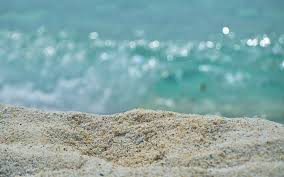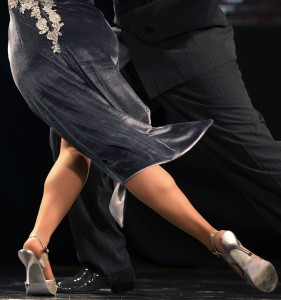The Silence Will Be There
 For today’s post: another poem, which for me points — however indirectly — to what it’s like (sometimes) to sit in meditation.
For today’s post: another poem, which for me points — however indirectly — to what it’s like (sometimes) to sit in meditation.
Hamper
by Jane Hirshfield
As sunlight or darkness fits itself
around lamp, table, or mountain,
silence stitches itself
around hopes, thoughts, and words.
Some hear it
the sound of their own speech
coming back from where they are dead.
Some find it summer-cool pillow,
winter wool coat.
Some tack their names
on its door and step inside.
And if in that room there is happiness
so without measure
you cannot keep your eyes open to see it,
and if, in that room, sorrow bends
like late nettles in sleet,
the silence will be there also to greet them,
setting each in its wicker hamper
on a plain blanket, two sleepy puppies.
And Sometimes It’s Like This
 Last week I posted a poem by Jane Hirshfield that seemed to express something of what it it’s like — sometimes — when I meditate. For today, I’m posting another poem, this one by Czeslaw Milosz, which seems to capture another feeling I sometimes get when I meditate (but only sometimes).
Last week I posted a poem by Jane Hirshfield that seemed to express something of what it it’s like — sometimes — when I meditate. For today, I’m posting another poem, this one by Czeslaw Milosz, which seems to capture another feeling I sometimes get when I meditate (but only sometimes).
Gift
by Czeslaw Milosz
A day so happy.
Fog lifted early. I worked in the garden.
Hummingbirds were stopping over honeysuckle flowers.
There was no thing on earth I wanted to possess.
I knew no one worth my envying him.
Whatever evil I had suffered, I forgot.
To think that once I was the same man did not embarrass me.
In my body I felt no pain.
When straightening up, I saw the blue sea and sails.
Sometimes It’s Like This
 Quite a lot of the time when I meditate, it just feels “normal” — I’m sitting and breathing and then daydreaming then I notice that I’m daydreaming and then I go back to just sitting and breathing…and then it all happens again, over and over and over again. But sometimes it’s not like that. Sometimes it’s very, very different.
Quite a lot of the time when I meditate, it just feels “normal” — I’m sitting and breathing and then daydreaming then I notice that I’m daydreaming and then I go back to just sitting and breathing…and then it all happens again, over and over and over again. But sometimes it’s not like that. Sometimes it’s very, very different.
Exactly how it is…is hard to describe.
So for today’s post, I offer this poem by Jane Hirshfield (a Buddhist practitioner). I don’t know for sure, but it seems clear to me that the poem is about what it feels like, sometimes, when you meditate.
Many-Roofed Building in Moonlight
I found myself
suddenly voluminous,
three-dimensioned,
a many-roofed building in moonlight.
Thought traversed
me as simply as moths might.
Feelings traversed me as fish.
I heard myself thinking,
It isn’t the piano, it isn’t the ears.
Then heard, too soon, the ordinary furnace,
the usual footsteps above me.
Washed my face again with hot water,
as I did when I was a child.
So Great
 My fiftieth year had come and gone,
My fiftieth year had come and gone,
I sat, a solitary man,
In a crowded London shop,
An open book and empty cup
On the marble table-top.
While on the shop and street I gazed
My body of a sudden blazed;
And twenty minutes more or less
It seemed, so great my happiness,
That I was blessed and could bless.
— W. B. Yeats, from Vacillation
Hugely Wildly Happy
 I booked my tickets yesterday for the trip to Garrison, NY, for the next CDL workshop, after which I will drive to Massachusetts to spend Saturday/Sunday with Mirabai Bush (my first Dharma teacher and the one whose whole-wide-world love make me hugely, wildly, happy.)
I booked my tickets yesterday for the trip to Garrison, NY, for the next CDL workshop, after which I will drive to Massachusetts to spend Saturday/Sunday with Mirabai Bush (my first Dharma teacher and the one whose whole-wide-world love make me hugely, wildly, happy.)
So for today, I will post this poem by the legendary Indian poet, who inspired Mirabai to take on her name.
The earth looked at Him and began to dance.
Mira knows why, for her soul too
is in love.
If you cannot picture God
in a way that always
strengthens you,
You need to read
more of my
poems.
–Mirabai, translated by Daniel Ladinsky
Reach for the Latch
 Who can open the door who does not reach for the latch?
Who can open the door who does not reach for the latch?
Who can travel the miles who does not put one foot
in front of the other, all attentive to what presents itself
continually?
Who will behold the inner chamber who has not observed
with admiration, even rapture, the outer stone?
— from Have You Ever Tried to Enter the Long Black Branches, by Mary Oliver
Before the Past is Erased
 My first grand-nephew is expected to come into this world sometime later this month. His name will be Ethan. His parents are my niece and her husband, and certainly, he was conceived in the usual way. But beyond that, what can we really know about who he is or where he has come from?
My first grand-nephew is expected to come into this world sometime later this month. His name will be Ethan. His parents are my niece and her husband, and certainly, he was conceived in the usual way. But beyond that, what can we really know about who he is or where he has come from?
For today, I am drawn to this from The Story, by Michael Ondaatje:
For his first forty days a child
is given dreams of previous lives.
Journeys, winding paths,
a hundred small lessons
and then the past is erased.
Some are born screaming,
some full of introspective wandering
into the past–that bus ride in winter,
the sudden arrival within
a new city in the dark.
And those departures from family bonds
leaving what was lost and needed.
So the child’s face is a lake
of fast moving clouds and emotions.
A last chance for the clear history of the self.
All our mothers and grandparents here,
our dismantled childhoods
in the buildings of the past.
Some great forty-day daydream
before we bury the maps.
It Does Just Fine
 Tonight’s KM group will move on to Chapter 20 in Joseph Goldstein’s Mindfulness: A Practical Guide to Awakening. The title of the chapter is Material Elements, Feelings, and Perceptions and in it he writes about that most-difficult-to-disucss aspect of the Buddha’s teachings…the empty, selfless nature of all phenomena (or “non-self”).
Tonight’s KM group will move on to Chapter 20 in Joseph Goldstein’s Mindfulness: A Practical Guide to Awakening. The title of the chapter is Material Elements, Feelings, and Perceptions and in it he writes about that most-difficult-to-disucss aspect of the Buddha’s teachings…the empty, selfless nature of all phenomena (or “non-self”).
To this end, he quotes a wonderful poem by Nobel Prize-winner, Wislawa Symborska:
View with a Grain of Sand
We call it a grain of sand,
but it calls itself neither grain nor sand.
It does just fine, without a name,
whether general, particular,
permanent, passing,
incorrect, or apt.
Our glance, our touch means nothing to it.
It doesn’t feel itself seen and touched.
And that it fell on the windowsill
is only our experience, not its.
For it, it is not different from falling on anything else
with no assurance that it has finished falling
or that it is falling still.
The window has a wonderful view of a lake,
but the view doesn’t view itself.
It exists in this world
colorless, shapeless,
soundless, odorless, and painless.
The lake’s floor exists floorlessly,
and its shore exists shorlessly.
The water feels itself neither wet nor dry
and its waves to themselves are neither singular nor plural.
They splash deaf to their own noise
on pebbles neither large nor small.
And all this beneath a sky by nature skyless
in which the sun sets without setting at all
and hides without hiding behind an unminding cloud.
The wind ruffles it, its only reason being
that it blows.
A second passes.
A second second.
A third.
But they’re three seconds only for us.
Time has passed like a courier with urgent news.
But that’s just our simile.
The character is invented, his haste is make believe,
his news inhuman.
Hints and Guesses
 A conversation at lunch today about fortunate and unfortunate circumstances, about children and family and the frailty of aging parents…has left me tender — and in awe — at the mystery of what it means to be alive. So I turn once again, to poetry.
A conversation at lunch today about fortunate and unfortunate circumstances, about children and family and the frailty of aging parents…has left me tender — and in awe — at the mystery of what it means to be alive. So I turn once again, to poetry.
For most of us, there is only the unattended
Moment, the moment in and out of time,
The distraction fit, lost in a shaft of sunlight,
The wild thyme unseen, or the winter lightning
Or the waterfall, or music heard so deeply
That it is not heard at all, but you are the music
While the music lasts. These are only hints and guesses,
Hints followed by guesses; and the rest
Is prayer, observation, discipline, thought and action.
The hint half guessed, the gift half understood, is
Incarnation.
— from Four Quartets, by T.S. Eliot
What Furthest Eludes
 This is the poem that speaks to me today:
This is the poem that speaks to me today:
A Person Protests to Fate
by Jane Hirshfield
A person protests to fate:
‘The things you have caused
me most to want
are those that furthest elude me’.
Fate nods.
Fate is sympathetic.
To tie the shoes, button a shirt,
are triumphs
for only the very young,
the very old.
During the long middle:
conjugating a rivet
mastering tango
training the cat to stay off the table
perserving a single moment longer than this one
continuing to wake whatever has happened the day before
and the penmanships love practices inside the body.
